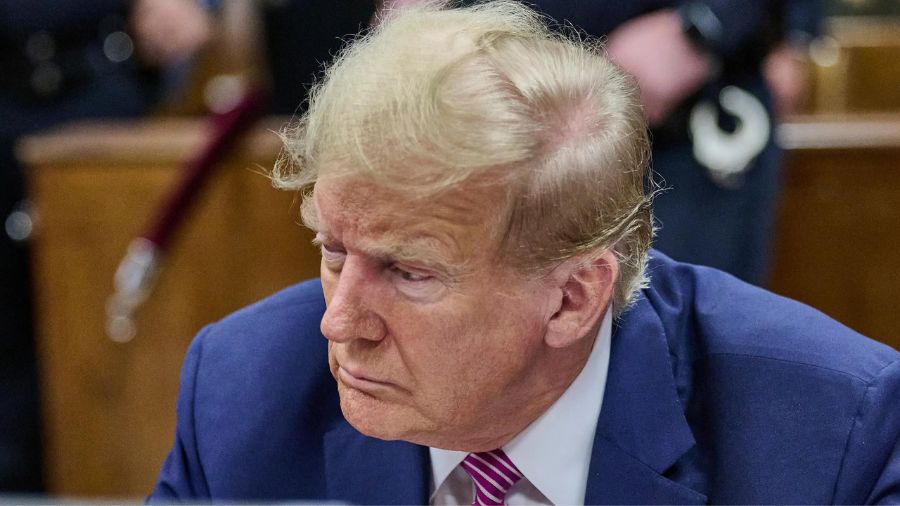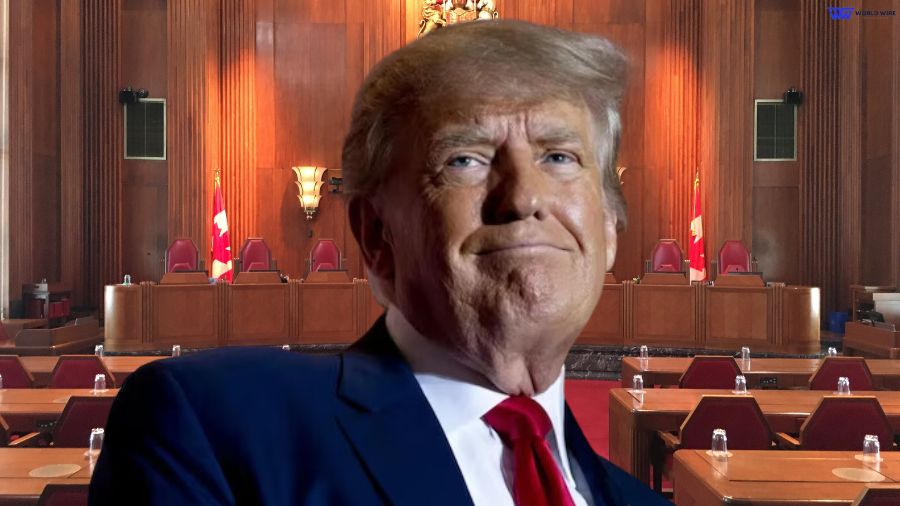This is the first time in history that prosecutors will be presenting a criminal case against a former American president to a jury.
On Monday, a hearing of opening statements is set for the jury as prosecutors accuse Donald Trump of a hush-money scheme aimed at preventing damaging stories about his personal life from becoming public.
This will be the first of the former president and presumptive Republican nominee’s four criminal charges to reach a trial.
This 12-person jury in Manhattan is set to hear opening statements from respective prosecutors and defense lawyers.
The statements will give jurors and the general voting public the clearest view of the case’s core allegations and insight into Trump’s defense.
The jury includes multiple lawyers, a sales professional, an investment banker, an English teacher, and others. It will be tested to see if the jurors can set aside any bias.
Along with that, Trump’s ability to abide by the court’s restrictions, such as a gag order that bars him from attacking witnesses, will be put to the test as well.
Prosecutors are seeking a fine against him for alleged violations of that order.
Attorneys of both ends are to introduce impactful personnel who are expected to testify in this case.
These include a ad**lt actress who says she had a s**ual encounter with Trump and the lawyer who allegedly paid her to keep shut about it.
In this case of Trump falsifying documents in order to bury his extramarital affairs allegations, he is charged with 34 felony counts.
If convicted, Trump could potentially face a four-year prison time. Yet, it is not clear if the judge would seek to put him behind bars.
A conviction cannot prevent Trump from becoming president again. But because he has repeatedly denied any wrongdoings, he would not be able to pardon himself if found guilty as this is a state case.

Amidst the presidential elections, Trump must spend his days in a courtroom hearing rather than a campaign trail.
Furthermore, he will have to bear with the witnesses recounting salacious and unflattering details of his private life.
Still, Trump has managed to turn this criminal defendant status into an asset for his campaign, fundraising off of his legal jeopardy and repeatedly attacking the justice system, which, for four years, he claimed to be “weaponized against him.”
Manhattan District Attorney Alvin Bragg brought this case, which focuses on the time when Trump’s celebrity past clashed with his political ambitions and how he attempted to bury it through hush money payments.
One of those payments was a sum of $130,000 that Michael Cohen, Trump’s former lawyer and personal fixer, now a key witness gave to actress Stormy Daniels to hinder her claims of having se**l encounters with Trump from surfacing into the public shortly before the 2016 presidential election.
Cohen also arranged $150,000 for the publisher of the National Enquirer supermarket tabloid to use a ‘catch-and-kill’ technique to silence model Karen McDougal, who also claimed to have had s**l encounters with Trump years prior.
According to prosecutors, Cohen was then reimbursed with bonuses and additional payments from the Trump organization, all of which were falsely written off as legal expenses.
Over time, Cohen said the company had paid him $420,000.
Cohen pleaded guilty to federal charges back in 2018 and is expected to be called upon as a key witness.
Trump has denied having a s**l encounter with Daniels and McDougal, and his lawyers argue that the payments to Cohen were legitimate legal expenses.
The allegations do not accuse Trump of atrocious abuse of powers as his other federal cases accuse of.
The federal case in Washington accuses him of plotting to overturn the 2020 presidential elections, whereas the Federal case in Florida accuses him of illegally retaining classified documents from the White House to Mar-a-Lago when he left office in 2021.
Thus, to convict Trump of a felony, prosecutors must prove that he not only falsified business records, which would be a misdemeanor but also that he had ulterior motives for doing so to cover another crime.
As this may be the only case out of the four that reaches the trial before the November elections, the New York prosecution has specifically taken on added importance in it. Appeals and legal wrangling have delayed the other three cases.







Add Comment